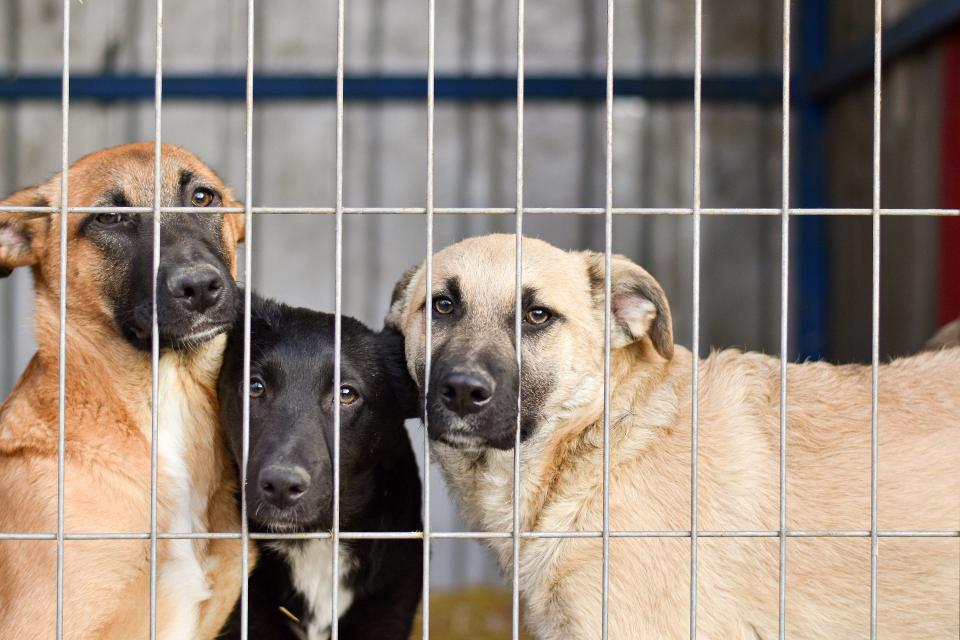Gadsden looks at registration, licenses for animals, permits for breeders
The Gadsden City Council will soon consider a significant addendum to its July 25 vote that mandated spaying or neutering for dogs and cats aged six months or older within the city limits.
A measure was presented during a recent precouncil session and discussed and approved in a Public Safety Committee meeting on Tuesday that would:

• Require pet owners within the city limits to register their animals and purchase city licenses at a nominal fee (which would be waived for those with low incomes or some on fixed incomes);
• Require anyone breeding dogs or cats for sale within the city limits to obtain a commercial breeders’ permit to exempt them from the spay/neuter requirement.
As with the spay/neuter mandate, city officials are under no illusions that the moves will make a significant dent in a massive animal overpopulation problem that has shelters bulging and Animal Control officers pulling as many as 150 dogs and 50 cats a month off the streets
They also are realistic about what the likely response rate will be, given that residents will be on an honor system as far as registering and licensing their animals, and enforcement will be reactive rather than proactive.
“The hope is that people will be honest and self-report,” Director of City Services Tena King told the Public Safety Committee. “Do I think it will happen? No, but having the language out there will be helpful and maybe deter some people. I don’t think it will deter everybody, by (any) means, but knowing there’s an ordinance ... it’s something we can enforce.”
The new policies will be amended to the city’s existing animal code and will go into effect Oct. 1 if the proposals receive full council approval. There will be a 30-day grace period for compliance.
Registration will be through the city’s revenue department. When registering, owners must provide the animal’s name, breed, age, fur color and gender, and note any identifying marks.
King said that might help Animal Control return dogs or cats to their owners should they get loose, instead of taking them to the Humane Society Pet Rescue and Adoption Center, which houses city strays.
The license fee will be $5 annually or $10 lifetime for spayed or neutered dogs or cats (verification of that status will be required). Free lifetime licenses will be provided to anyone with a household income of $35,000 or less, or who receives Medicaid, Social Security Disability Insurance or Supplemental Nutrition Assistance Program benefits.
The fee jumps to $50 annually if an animal isn’t spayed or neutered. King said a survey of area veterinarians shows the charge for those services ranges from $65 to $100, depending on the animal’s size and other factors, so people would “come out ahead” on the licenses by getting it done.
Animals will receive city tags, much like the traditional rabies immunization tags. There will be a $5 penalty for annual license renewals done more than 30 days after the expiration date.
If animal control picks up a dog or cat that’s unlicensed or with a license that’s expired by more than 30 days, the owner will face a $100 fine for a first offense, $200 for a second offense and $300 for a third offense, and an additional $500 fine if the animal isn’t spayed or neutered.
A commercial breeder’s permit will be $200 annually; to qualify for that designation, breeders must either breed or offer for breeding or stud purposes one or more dogs or cats producing three or more litters a year, or offer puppies or kittens resulting from such breeding for sale.
Similar penalties to those for licensing noncompliance will be included in the final ordinance.
Revenue from the licenses and breeder’s permits will be divided 50-50 between:
• The Humane Society, earmarked for a spay/neuter program;
• The city’s Animal Control department.
“We need some additional chip readers and additional training to help Animal Control do their jobs,” King said.
She said next year’s city budget will contain funding for another Animal Control officer, which will enable the department to staff all its vehicles with two officers.
Council member Jason Wilson, chairman of the Public Safety Committee, noted to law enforcement personnel present at Tuesday’s meeting that the measure is, realistically, “unenforceable,” and there would be no expectation otherwise.
But he cited the revenue that would be produced to help Animal Control and, more importantly, that “every dog or cat you spay or neuter, you’re keeping hundreds of animals from potentially being on the streets.
“This is a slow dime,” Wilson added, “not a quick nickel.”
This article originally appeared on The Gadsden Times: City of Gadsden looks at additional rules for pet owners

